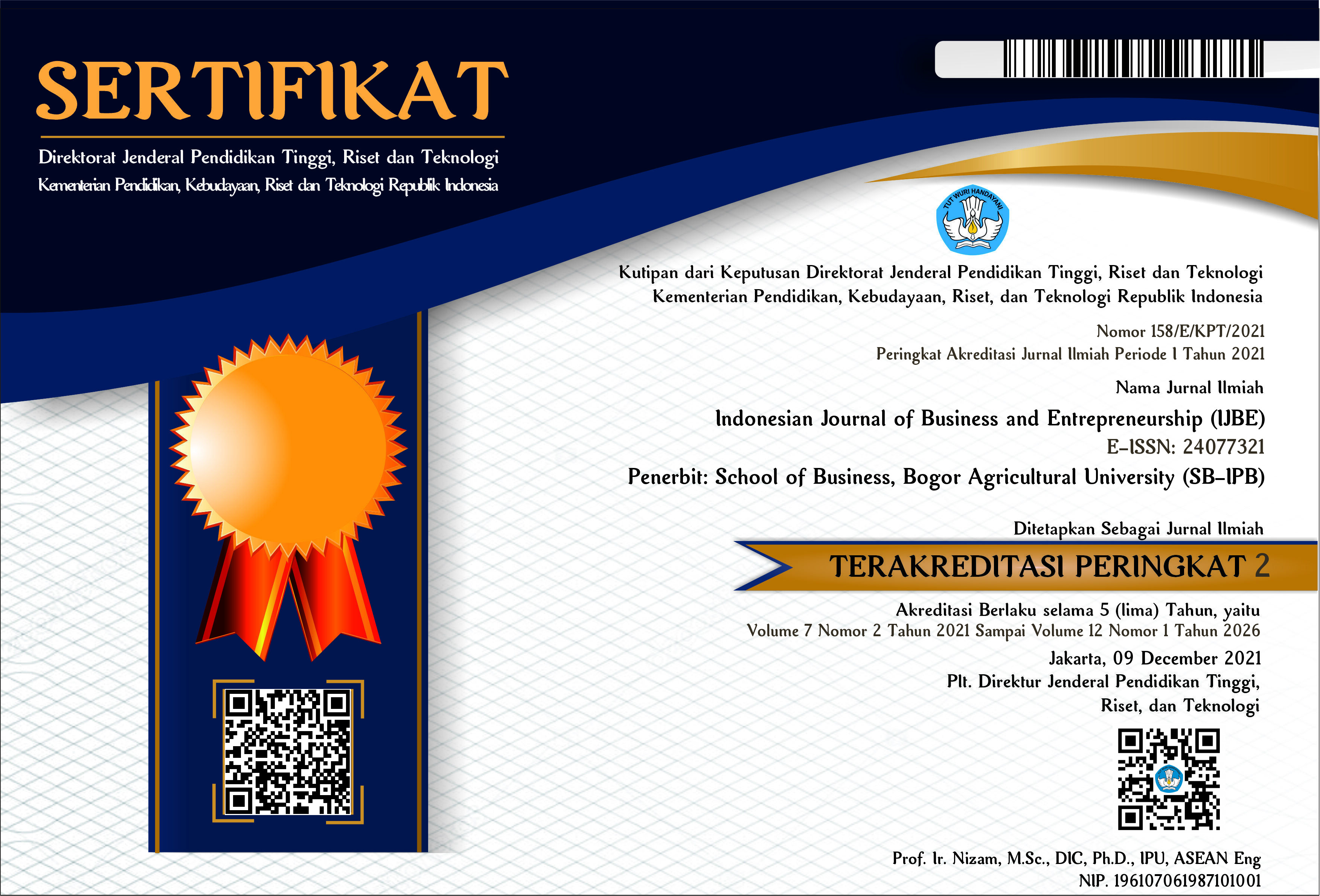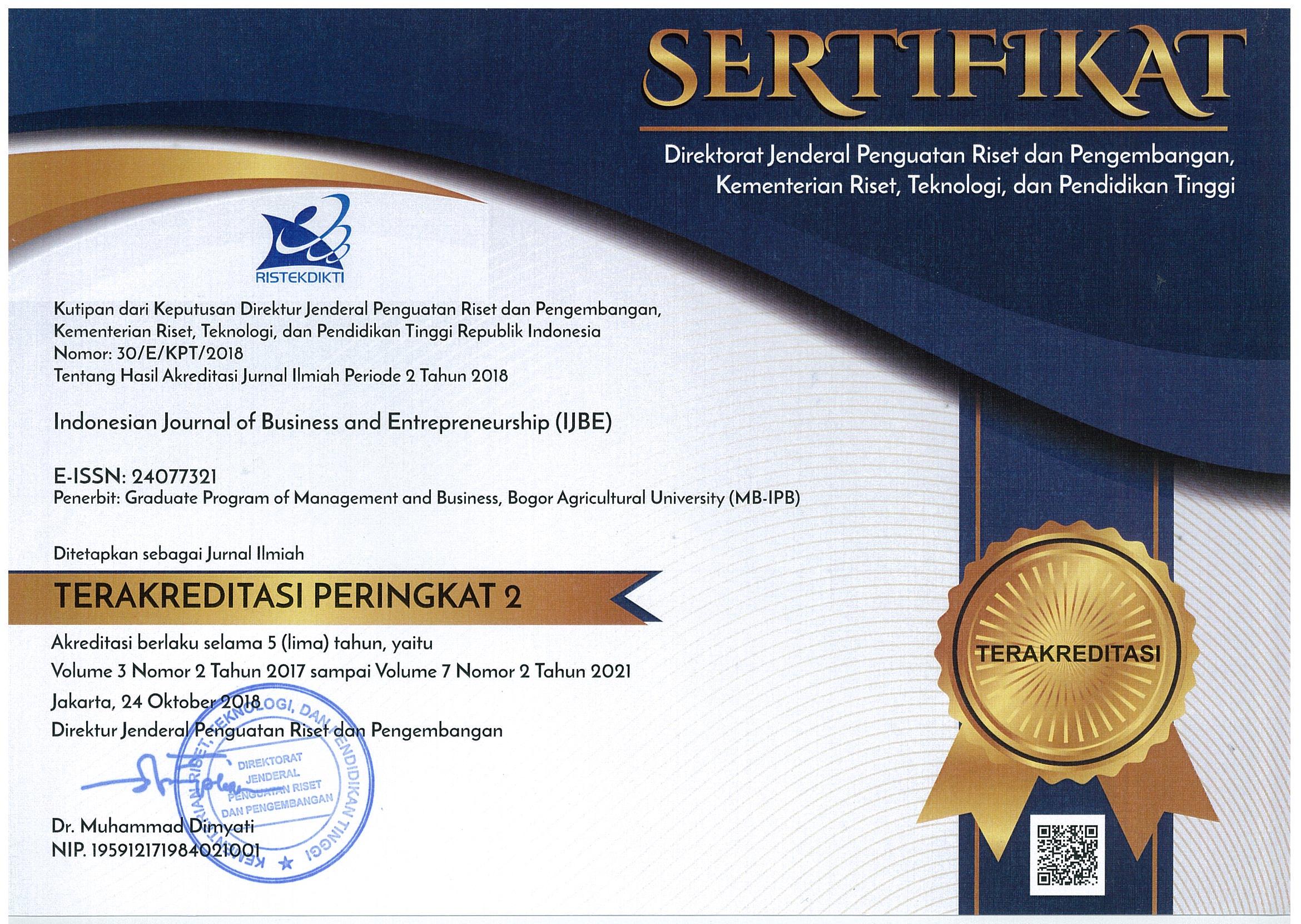An Investigation of The Determinant Influencing Indonesian Households' Decisions to Consume Fast Food
Abstract
Background: In this day and age, hectic work schedules and daily routines have an impact on household consumption patterns and lifestyles. This is especially true in Indonesia and many other countries where people are shifting from preparing their own food to buying fast food.
Purpose: To determine the reasons why families eat fast food, examine those reasons, and calculate the direct and indirect consequences of those reasons.
Design/methodology/approach: Using a purposive sample approach and direct and online surveys, the study was carried out in 2023 on 1021 respondents in Pekanbaru City, Riau specifically, and Indonesia in general. Using the SEM-PLS analysis tool, a descriptive quantitative analysis method is used.
Findings/Result: The study's findings indicate that a variety of interrelated elements, including cultural, personal, psychological, social, economic, and place-related aspects, have an impact on households' intake of fast food. The elements that have an impact on household decisions to consume fast food are described together with their relationship and influence, based on multiple direction connections.
Conclusion: In summary Decisions on how much fast food to eat are heavily influenced by social and individual factors. This demonstrates how the decision to purchase fast food is influenced by factors such as household identity, social environment, and social media environment.
Originality/value (State of the art): Research can reveal a true picture of the interactions between variables that have not been seen in earlier studies, offering managerial implications and contributions to the formulation of policies that directly affect Indonesia's fast-food industry.
Keywords: household consumption, social environment, fast food, lifestyle, social media








